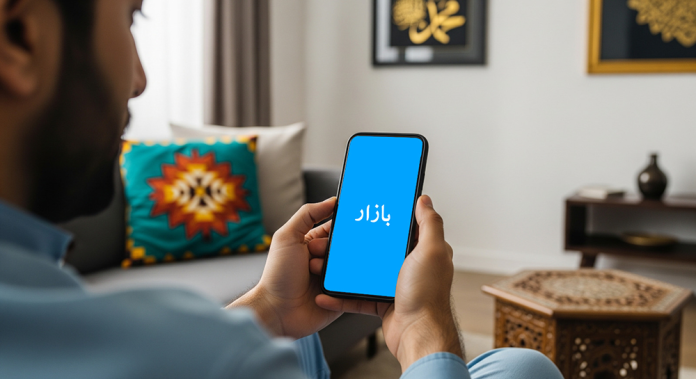Over the past decade, Pakistan’s startup scene has continued to make its way into global headlines. Fintech, ridesharing, and edtech have attracted significant attention, but there’s another sector that has also become central to the country’s economy: grocery delivery apps.
What began as a way to digitise delivery services has grown into one of the most competitive and transformative areas in Pakistan’s startup ecosystem. Grocery apps are not just providing convenience, they are changing the way households shop and challenging traditional retail models. Platforms like Bazaar App have emerged as key players, showing how local startups can scale quickly by solving everyday problems.
A Market Too Big to Ignore
Pakistan’s grocery market is massive, with food and household staples accounting for the bulk of consumer spending. For decades, this sector has been served through a mix of small supermarkets, large grocery stores, and neighborhood shops.
But whether people shopped at their closest grocery chain or their trusted corner shop, one thing remained the same: the process was always offline. Prices weren’t always transparent, selection was limited by shelf space and availability, and shopping required a lot of time and effort.
For startups, this was the gap. By moving the entire shopping experience into a grocery delivery app, they offered households something both familiar and novel: the same grocery items they would normally buy in-store, but ordered through online and delivered to their door. Apps like Bazaar have made this transition easier by combining the familiarity of a supermarket with the convenience of digital shopping.
From Storefronts to Smartphones
The rise of online grocery shopping is part of Pakistan’s broader digital adoption. Over the past few years, smartphone penetration has increased dramatically, and affordable internet packages have made mobile apps accessible to households of all socioeconomic backgrounds. This transformation has created the perfect circumstances for the growth of e-commerce.
Instead of carrying a handwritten grocery list to the nearby grocery store, consumers in both large and small cities now add items to their digital carts with just a few taps. A tiring task that once consumed up to half a day — navigating through traffic and crowded aisles — can now be completed in minutes. This shift is about more than convenience. It signals a fundamental change in customer wants and needs, one that many startups are racing to meet.
Redefining Retail Infrastructure
Beyond consumer convenience, grocery delivery apps are forcing a rethink of Pakistan’s retail infrastructure. By wholesalers and retailers directly to digital platforms, these startups are reducing inefficiencies that have long plagued supply chains.
For small shops and businesses, this shift has opened new opportunities. Many businesses now partner with delivery platforms to further their reach, blending their offline presence with online access. Instead of losing relevance, these shops are finding ways to remain part of the consumer journey.
Creating New Jobs and Skills
The rise of grocery delivery apps has created thousands of jobs, from delivery riders and warehouse staff to engineers and marketers. Startups in this space are not only creating more opportunities but also equipping workers with new skills — from handling digital payment systems to managing logistics through real-time dashboards.
The ripple effects are significant. Logistics startups benefit from higher demand, fintech firms gain more transaction volumes through online grocery, and even packaging companies see growth. The grocery delivery sector has become a hub that supports multiple sectors of Pakistan’s startup ecosystem.
The Bigger Picture: Grocery Delivery as the New Standard
Grocery delivery in Pakistan has grown into much more than a quick way to shop — it’s become a sign of how far the country’s digital life has come. If people are willing to order something as basic and essential as groceries through an app, it shows that technology is no longer limited to special occasions or luxury services. It’s part of everyday life.
This shift matters because groceries touch every household. Unlike ride-hailing or online learning, which appeal to specific groups, grocery delivery speaks to everyone. It proves that Pakistanis are not only open to digital solutions but are ready to make them a normal part of their routines.
For the wider business community, the rise of grocery delivery apps also sends a strong message: Pakistan is ready for serious, sustainable digital businesses. What started as an experiment to make shopping easier has now turned into a force that connects families, creates jobs, and brings more efficiency into the way we shop. With companies like Bazaar leading the charge, grocery delivery is showing what’s possible when technology is applied to everyday essentials.
As it grows, grocery delivery could set the stage for Pakistan’s next wave of startups — companies that use technology to solve everyday problems in simple, practical ways. In many respects, it’s not just leading the change in how we shop. It’s reshaping how we think about business, technology, and daily life in Pakistan.
Curious to experience online grocery shopping for yourself? Check out Bazaar App on mobile or web today.


